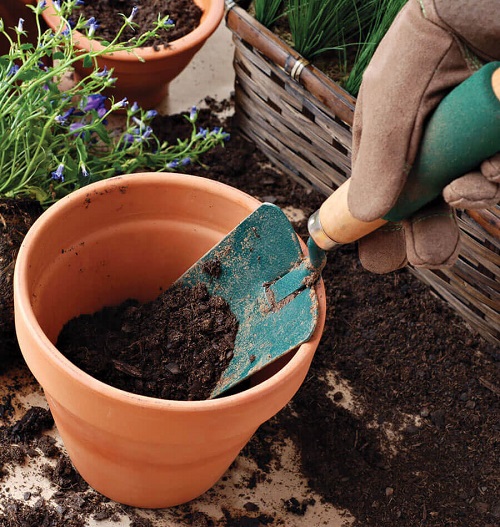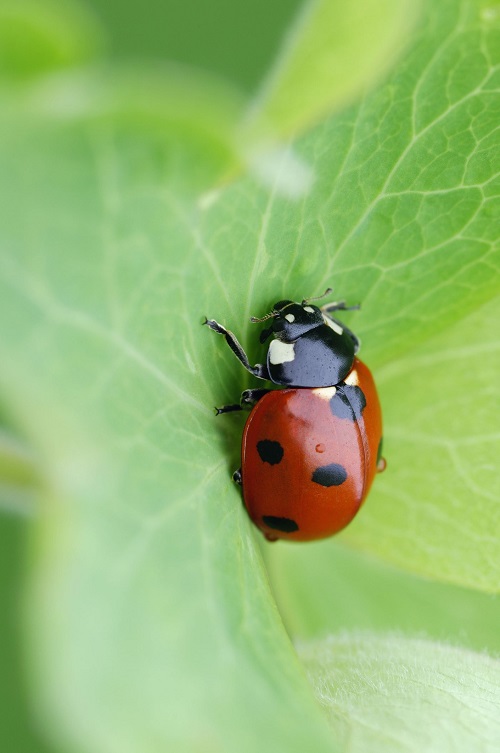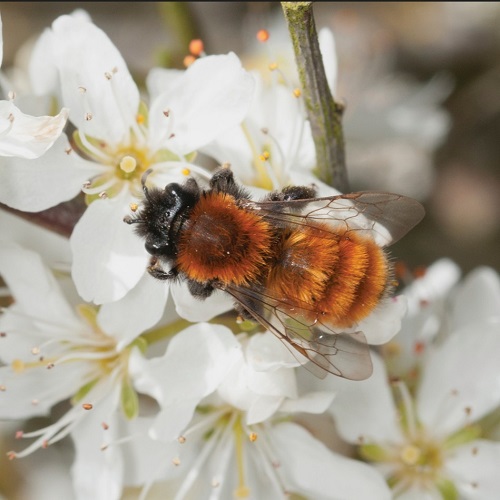Have you always wanted a Vegan Garden but have no idea where to start? Here’s A Beginner’s Guide To Create A Vegan Garden!
With a little planning and some work, you, too, can create a stunning vegan garden for your home. Here’s A Beginner’s Guide To Create A Vegan Garden to make sure you learn everything you need.
How to Grow Any Bulb in a Glass of Water
Why Choose Vegan Gardening?
Vegan gardening, often referred to as veganic gardening, is a sustainable and cruelty-free approach to cultivating plants and food without the use of animal products or synthetic chemicals.
A vegan garden aligns with ethical values by avoiding the exploitation of animals for gardening practices. It promotes environmental sustainability by reducing greenhouse gas emissions associated with animal agriculture. Furthermore, a vegan garden results in healthier soil, which in turn leads to more nutritious and better-tasting crops. It also minimizes the risk of soil contamination, ensuring a cleaner and safer harvest.
How to Start a Vegan Garden
1. Start Small
You don’t need a vast expanse of land to kickstart your journey into growing your own fruits and veggies. Even a handful of potted plants can set you on the right path, especially if you lack a traditional garden space. Small patios and balconies can also be home to thriving potted plants.
Here are some easy-to-grow plants that are perfect for starting your small vegan garden:
- Herbs: Herbs like basil, mint, parsley, and chives are incredibly beginner-friendly and can thrive in small pots or containers. They’re versatile, flavorful, and a great addition to your cooking.
- Cherry Tomatoes: Cherry tomato plants are compact and well-suited for containers. They produce sweet, bite-sized fruits and are relatively low-maintenance.
- Lettuce and Salad Greens: Lettuce, spinach, and other leafy greens are fast growers and can be harvested continuously. They’re perfect for small spaces and even window boxes.
- Radishes: Radishes are one of the fastest-growing vegetables. You can harvest them in as little as 3-4 weeks, making them an excellent choice for impatient gardeners.
- Green Onions: Green onions, or scallions, are easy to grow in small pots or even reused containers. They add a mild onion flavor to your dishes.
- Cucumbers: Compact cucumber varieties are well-suited for container gardening. They’re perfect for fresh salads and pickling.
2. Use Vegan Potting Soil
Vegan potting soil is an eco-conscious gardening solution that aligns with the principles of plant-based living. Unlike traditional potting mixes that may contain animal-derived components such as bone meal or blood meal, vegan potting soil is entirely free from animal byproducts.
Instead, it relies on sustainable plant-based ingredients like coconut coir, peat moss alternatives, and organic compost. Vegan potting soil provides plants with essential nutrients and a healthy growing environment while promoting ethical and sustainable gardening practices.
Choosing vegan potting soil offers a plethora of benefits beyond its animal-friendly nature. By omitting animal-based ingredients, it reduces the demand for factory farming and the environmental consequences associated with it.
Moreover, vegan potting soil is often sourced from renewable resources and formulated to retain moisture efficiently, reducing water waste in your garden.
3. Organic Seeds or Seedlings
Choosing the right seeds and seedlings is a fundamental step in establishing a successful vegan garden that aligns with your values of sustainability and ethical gardening practices.
Opting for organic seeds and seedlings ensures that your garden starts off on the right foot, free from synthetic chemicals, and in harmony with nature.
Why Choose Organic Seeds and Seedlings?
Organic seeds and seedlings offer numerous benefits for both your garden and the environment:
- Chemical-Free: Organic seeds and seedlings are cultivated without synthetic pesticides, herbicides, or fertilizers. This means that from the very beginning, your garden is free from harmful chemicals that can disrupt the ecosystem.
- Non-GMO: Organic seeds are typically non-genetically modified (non-GMO). This ensures the genetic integrity of your plants and supports biodiversity.
- Soil Health: Organic farming practices prioritize soil health. By choosing organic seeds, you contribute to the development of healthy, nutrient-rich soil in your garden.
Where to Find Organic Seeds and Seedlings
You can easily access organic seeds and seedlings through the following sources:
- Local Nurseries: Visit your local gardening centers or nurseries, many of which now offer a wide selection of organic seeds and seedlings. Nursery staff can provide valuable insights into the best varieties for your area.
- Online Retailers: Numerous online retailers specialize in organic gardening supplies. Ordering online gives you access to a vast array of plant varieties and allows you to research and compare options from the comfort of your home.
- Seed Swaps and Local Gardens: Explore local gardening communities and participate in seed swaps or inquire about locally grown organic seedlings. Engaging with fellow gardeners can be an excellent way to obtain unique and well-adapted varieties.
4. Do Not Kill Useful Insects
In the world of vegan gardening, the well-being of all creatures in your garden is paramount. This means steering clear of harmful poisons and traps.
Instead, employ humane methods like fencing or netting to deter hungry birds or rabbits from your crops. Furthermore, veganic gardening prohibits the use of pesticides to combat plant-devouring pests.
To maintain a harmonious and eco-friendly garden, focus on cultivating a balanced ecosystem where natural predators like ladybugs can help control aphids and other pests. A
dditionally, consider planting herbs like mint, rosemary, and basil, which not only add flavor to your culinary creations but also naturally repel unwanted insects, ensuring a pest-resistant and compassionate garden environment.
5. Choose a Vegan Compost
While chemical fertilizers are convenient, they are not natural and organic and can change the fertility of your garden’s soil. Animal fertilizers, like well-rotted manure, are animal by-products and, therefore, not vegan.
As vegan gardeners, you should prefer plant products, like hay, to mulch and add nutrients to the soil or compost. Compost is excellent for your garden as long as there are no animal products in it, so no eggshells. Here’s the best vegan compost recipe.
Vegan Compost Recipe
Ingredients
- “Brown” Material: Collect dry leaves, straw, or twigs from your outdoor environment.
- “Green” Material: Gather kitchen scraps like fruit and vegetable peels, coffee grounds, and plant-based food waste.
- Water: Ensure you have access to water to maintain proper moisture levels in your compost pile.
Steps
- Layer the Materials: Begin your compost pile by creating alternating layers of “brown” and “green” materials. Aim for a 2:1 ratio of brown to green material.
- Add Water: As you layer, lightly moisten the pile. The compost should be as damp as a wrung-out sponge, not soggy.
- Turn the Pile: Every few weeks, use a pitchfork or shovel to turn the compost pile. This helps aerate the material and speeds up decomposition.
- Be Patient: Composting takes time. Depending on conditions, it can take several months to a year for your compost to fully mature. You’ll know it’s ready when it looks dark, crumbly, and earthy-smelling.
- Use in Your Garden: Once your compost is ready, spread it generously over your garden beds. It’s a fantastic organic fertilizer that enriches the soil and promotes healthy plant growth.
By following this vegan compost recipe, you’ll not only nourish your garden sustainably but also contribute to a healthier planet by reducing food waste and avoiding animal-derived products.
6. Go for Companion Planting

Companion planting is like orchestrating a harmonious symphony in your garden, where plants collaborate to enhance growth, deter pests, and attract beneficial pollinators. It creates a balanced ecosystem that benefits all living beings, from plants to bees, butterflies, and birds.
Companion Plant Combinations to Consider for Vegan Garden
- Tomatoes and Basil: Planting these two together not only enhances flavor in your dishes but also helps ward off flies and mosquitoes, boosting yields for both.
- Lettuce, Carrots, Spinach, and Celery: These veggies thrive when grown in close proximity, not only in your garden but also in your salad bowl. Their compatible growth habits make them ideal companions.
- Cabbage, Beets, and Rosemary: Keep these plants separate since they can be susceptible to similar diseases, preventing cross-contamination and promoting better health for your crops.
- Onions and Beans: While onions should be kept away from beans, they make excellent companions for other plants. Their pungent aroma can deter pests from neighboring crops.
- Corn and Beans: These two plants are excellent companions, as corn provides a natural trellis for beans to climb, creating a mutually beneficial partnership.
7. Pay Attention to the Watering Needs

Planning an effective watering system is a critical aspect of successful vegan gardening. Early consideration and proper implementation can save water, promote plant health, and simplify garden maintenance.
Steps for Efficient Water Management
- Evaluate Water Needs: Assess the water requirements of your chosen plants, considering factors like climate, soil type, and plant varieties. Some plants thrive with consistent moisture, while others prefer drier conditions.
- Drip Irrigation: Consider installing a drip irrigation system, a highly efficient method for delivering water directly to the plant’s root zones. Drip systems minimize water wastage by reducing evaporation and runoff. They can be set on timers to provide consistent watering, even when you’re away.
- Soaker Hoses: Alternatively, opt for soaker hoses, which deliver water along their length through tiny pores. These hoses can be placed along rows or around individual plants, ensuring slow, deep watering and minimal water loss to evaporation.
- Mulch and Irrigation: Pair your chosen watering system with a layer of organic mulch, such as straw or wood chips, around your plants. Mulch helps retain soil moisture, reducing the frequency of irrigation and conserving water.
- Rain Barrels: Consider installing rain barrels to collect and store rainwater for garden use. This sustainable practice not only conserves water but also provides a chlorine-free water source that plants often prefer.
8. Support Pollinators
Creating a vegan garden goes beyond producing food; it involves nurturing a balanced ecosystem. One essential element of this ecosystem is pollinators, which play a crucial role in fertilizing plants.
To support these beneficial insects like bees, butterflies, and hummingbirds, consider the tips suggested below:
Native Plant Selection
Choose native flowering plants that provide nectar and pollen sources throughout the growing season. Native plants are adapted to your region’s climate and will attract a diverse range of pollinators.
Choose Diversity
Opt for different flower colors to bring all kinds of pollinators to your vegan garden. Various pollinators are attracted to specific colors.
For example, blue, purple, and yellow flowers tend to attract bees and butterflies, while red and orange hues are alluring to hummingbirds. So, incorporating a mix of colors increases the likelihood of attracting a diverse group.
Plant in Layers
Create layers in your garden by planting flowers of varying heights. This offers pollinators options for feeding and resting at different levels, enhancing their overall experience in your garden.
Continuous Blooms
Select plants that bloom at different times of the year to ensure a consistent food source for pollinators. This provides sustenance even during leaner periods and encourages them to return. Here are the best shrubs that bloom year-round!
Shelter and Water
Integrate features like bird baths, small ponds, or even damp sand for mud baths for pollinators to access water. Additionally, provide habitat elements like rocks, logs, or small brush piles where these beneficial insects can seek refuge.
Avoid Commercial Pesticides
Refrain from using chemical pesticides that can harm pollinators. Instead, focus on natural pest control methods and practices that maintain a balanced ecosystem.
Embrace the Vegan Gardener Within
As you embark on your journey to create a vegan garden, remember that it’s more than just a hobby; it’s a lifestyle rooted in compassion and sustainability.
With each seed you plant and each thoughtful choice you make, you’re not only cultivating a garden but also sowing the seeds of positive change.
So, let the principles of vegan gardening guide your path, and may your garden thrive as a testament to the beauty of harmonious coexistence with nature.
FAQs
1. What Are the Key Principles of Veganic Gardening?
Veganic gardening focuses on avoiding animal products and synthetic chemicals. It prioritizes ethical and sustainable practices, including cruelty-free pest control, organic seeds, and nurturing a balanced garden ecosystem. It’s a holistic approach that benefits both your garden and the environment.
2. Are There Alternatives to Chemical Fertilizers in Vegan Gardening?
Yes, there are plenty of vegan-friendly options. Organic plant-based materials like compost, coconut coir, and mulch can enrich your soil naturally. These alternatives promote soil health and plant growth without the need for synthetic chemicals.
3. Can I Use Rainwater for My Vegan Garden, and How Do I Collect It?
Yes, collecting rainwater is an eco-friendly way to water your garden. Set up rain barrels beneath your downspouts to capture and store rainwater. Use it to irrigate your plants, reducing water waste and chlorine exposure.
4. Veganic Gardening Practices for Indoor Vegan Garden
For indoor vegan gardening, choose suitable plant varieties that thrive indoors. Utilize natural light or grow lights, and ensure proper drainage in your containers. Composting may require a smaller-scale approach, such as worm composting.









Nice